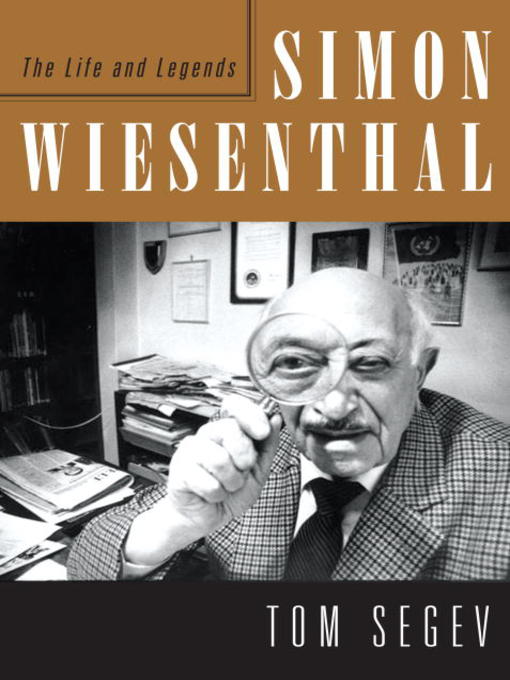
Simon Wiesenthal
The Life and Legends
کتاب های مرتبط
- اطلاعات
- نقد و بررسی
- دیدگاه کاربران
نقد و بررسی

July 26, 2010
Bringing war criminals to justice makes for endless controversy, according to this thoughtful, knotty biography of the Jewish icon and Nazi hunter Simon Wiesenthal. Israeli historian and newspaper columnist Segev (1967) recaps Wiesenthal's hair-raising travails in occupied Poland and in German concentration camps during WWII, then follows his unique postwar career as a freelance detective pushing for the arrest and prosecution of Holocaust perpetrators in his homeland of Austria and abroad. Just how many Nazis were tried and convicted as a result of Wiesenthal's actions is a vexed question; Segev's sympathetic but critical treatment grants him a central role in bringing down Adolf Eichmann, death-camp commandant Franz Stang, and hundreds of other Nazis, but allows that he embroidered his exploits and made up evocative stories. The author gives a similarly nuanced reading of Wiesenthal's maneuverings in the treacherous politics of Holocaust remembrance, which garnered him enemies in all quarters: he drew flak—"‘Sleazenthal'"—from Jewish groups for supporting former U.N. secretary-general Kurt Waldheim when he was outed as a Wehrmacht henchman and even Wiesenthal himself was falsely accused of wartime collaboration. Segev's Wiesenthal is a complicated man, by turns avuncular and prickly, idealistic and self-promoting, but he's ultimately a heroic, necessary figure who forced a world that would rather forget to acknowledge its debt to the dead.

October 1, 2010
Nazi hunter Wiesenthal is an iconic figure in modern Jewish history. Given that Israeli journalist Segev is somewhat of an iconoclast, it may be surprising that he does not seek to challenge Wiesenthal's heroic status; instead, he presents a judiciously organized and researched examination of Wiesenthal's life and the images of himself he projected. Segev cogently argues that to understand Wiesenthal it is necessary to situate him in the multiple spheres of modern Jewish life. A Holocaust survivor who lived in Austria among the remnants of European Jewry, Wiesenthal had deep ties to the United States, whose soldiers liberated him and whose Jewish community provided material and emotional support for his work. Wiesenthal's grandchildren, meanwhile, are mostly Israelis. Segev subjects Wiesenthal's autobiography to critical examination, and while he finds that some details are exaggerated, he shows that such slanders as the accusation that Wiesenthal was a Nazi collaborator are not valid. VERDICT The man who emerges from this text is ultimately more complex, and indeed likable, than the mythologized figure. Segev's study should be the standard for many years.--Frederic Krome, Univ. of Cincinnati Clermont Coll.
Copyright 2010 Library Journal, LLC Used with permission.

September 15, 2010
Those who first witnessed the public persona of Simon Wiesenthal in the last decades of his life saw a grandfatherly figure with a benign smile, speaking with a vague middle-European accent and showing courtly manners. Yet this man endured Nazi concentration camps and then spent almost 60 years relentlessly exposing and helping to pursue those war criminals who had escaped justice. Segev, the widely acclaimed Israeli journalist, has written the first fully documented biography of this complicated and haunted man. Wiesenthal was born in a Jewish shtetel in the Polish-Russian borderland, but he regarded Austria as his cultural and political homeland. He always prized his Jewish identity, but he harbored strong resentments at what he viewed as the inaction of both Zionists and diaspora Jews as Nazi intentions became clear. Despite resistance from other Jewish Holocaust survivors, he insisted on viewing the Holocaust as a crime against humanity as a whole. He could be stubborn, quarrelsome, and prone to embellishing his accomplishments. Still, Segev illustrates that his blemishes cannot diminish his great role in demanding that the perpetrators of such outrages be called to account.(Reprinted with permission of Booklist, copyright 2010, American Library Association.)

























دیدگاه کاربران